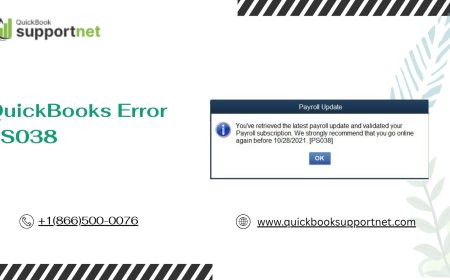When and Why to Upgrade: Signs Your Business is Ready for a Dynamics 365 Upgrade
A Dynamics 365 upgrade is not just about moving to the latest software version. It’s a strategic decision that impacts your organization's scalability, security, performance, and digital transformation capabilities.

In todays digital-first business environment, staying competitive requires more than just keeping operations runningit requires agility, integration, and real-time insights. For businesses using legacy ERP or CRM systems such as Dynamics AX, NAV, or older versions of Dynamics CRM, the pressure to evolve is mounting. As Microsoft continues to modernize its cloud-first solutions, many organizations are faced with a critical question: Is it time for a Dynamics 365 upgrade?
A Dynamics 365 upgrade is not just about moving to the latest software version. Its a strategic decision that impacts your organization's scalability, security, performance, and digital transformation capabilities. In this article, well explore when and why your business might be ready for an upgrade, along with key signs to watch for and the strategic advantages of making the move.
Understanding the Dynamics 365 Upgrade
Before diving into the "when" and "why," its important to clarify what a Dynamics 365 upgrade involves. Microsoft Dynamics 365 is the unified cloud platform that integrates ERP (like Finance, Supply Chain Management) and CRM (like Sales, Customer Service) functionalities under one ecosystem. Its designed for flexibility, automation, and intelligent decision-making.
A Dynamics 365 upgrade typically involves:
-
Migrating from legacy systems (Dynamics AX, NAV, GP, or CRM) to the modern Dynamics 365 platform.
-
Moving from on-premise to cloud (or hybrid) infrastructure.
-
Redesigning outdated customizations using Power Platform.
-
Aligning business processes with modern best practices.
Why Upgrade to Dynamics 365?
Businesses pursue a Dynamics 365 upgrade for many reasonssome driven by necessity, others by opportunity. Here are the core motivations:
1. End of Support for Legacy Systems
Microsoft has ended or is phasing out support for several older versions of Dynamics. Running an unsupported system increases security risks, reduces performance, and limits access to new features. Upgrading to Dynamics 365 ensures continued access to updates, bug fixes, and critical patches.
2. Need for Cloud Scalability
As businesses grow, their systems must scale without adding complexity. Dynamics 365, being cloud-native, offers elastic scalability that supports business expansion, seasonal peaks, or geographic diversification without infrastructure headaches.
3. Enhanced Security and Compliance
With evolving data privacy regulations like GDPR, CCPA, and industry-specific standards (HIPAA, ISO, SOX), compliance is no longer optional. Dynamics 365 offers robust, Microsoft-managed security and built-in compliance features, reducing your legal and reputational risks.
4. Desire for Real-Time Insights and Analytics
Legacy systems often struggle to provide timely and accurate data. Dynamics 365 integrates with Microsoft Power BI and Azure Data Lake, enabling real-time dashboards, predictive analytics, and AI-driven insightsempowering better decision-making.
5. Cost Optimization
Maintaining on-premise infrastructure, hardware, and manual workarounds can be expensive. Cloud-based Dynamics 365 reduces IT overhead, eliminates unnecessary customizations, and provides a pay-as-you-go model, helping businesses better manage costs.
6. Improved User Experience and Mobility
Modern employees expect fast, intuitive, and mobile-friendly tools. Dynamics 365 offers a consistent and responsive user experience across web, mobile, and tabletboosting user adoption and productivity.
When Is the Right Time for a Dynamics 365 Upgrade?
Timing is critical. Upgrade too early, and you may not be ready to maximize its value. Wait too long, and you risk falling behind. Here are seven key signs your business is ready for a Dynamics 365 upgrade:
1. Your System Is Outdated and Sluggish
If your ERP or CRM system takes too long to load, crashes frequently, or lacks essential features, its a clear indicator that its time for an upgrade. Performance lags can cost you time, money, and customer trust.
Example: A distribution company using Dynamics NAV 2009 may struggle with slow order processing and outdated UI, impacting sales and fulfillment.
2. Youre Dependent on Workarounds and Manual Processes
If employees rely heavily on spreadsheets, third-party tools, or manual data entry to bridge system gaps, it suggests your current platform is no longer fit for purpose. Dynamics 365 streamlines workflows, automates tasks, and connects your entire organization on one platform.
3. Integration with Other Systems Is a Challenge
In a connected digital ecosystem, seamless integration with tools like Office 365, Teams, Outlook, e-commerce platforms, and analytics solutions is essential. If your system struggles to integrate or requires heavy custom development, its time for a Dynamics 365 upgrade.
4. Youre Expanding Rapidly (New Markets, Users, or Products)
If your business is scalingwhether adding new product lines, international markets, or user groupsyou need a system that grows with you. Dynamics 365 provides multi-currency, multi-language, and multi-entity support right out of the box.
5. You Face Increasing Compliance Pressures
Regulatory bodies are tightening controls, and auditors expect detailed documentation, process control, and secure data management. Dynamics 365 offers built-in compliance tools and audit trails to simplify governance.
6. You Want to Embrace AI, IoT, or Machine Learning
If your organization is exploring emerging technologies like AI-driven sales recommendations, automated customer service bots, or IoT-connected devices, your current system might not be able to support them. Dynamics 365 is AI-enabled, allowing you to innovate quickly.
7. Youre Spending More on Maintenance Than Innovation
If most of your IT budget goes to patching outdated systems rather than driving new value, you're being held back. A Dynamics 365 upgrade can reduce maintenance effort, freeing up resources for strategic projects.
Strategic Benefits of a Dynamics 365 Upgrade
Beyond solving existing pain points, upgrading to Dynamics 365 offers forward-looking benefits:
1. Future-Proof Your Business
Microsoft invests heavily in Dynamics 365, with regular updates and AI-powered enhancements. Upgrading ensures your business stays ahead of the technology curve.
2. Faster Time to Value
Thanks to pre-configured templates, industry accelerators, and low-code tools like Power Apps and Power Automate, businesses can achieve faster deployments and quicker ROI.
3. Global Ecosystem and Partner Support
A large network of Microsoft partners ensures that you have access to skilled consultants, developers, and support resources during and after your upgrade.
4. Unified View of Customers and Operations
Dynamics 365 breaks down silos between departments, offering a 360-degree view of your customers, operations, and supply chainall in one platform.
Planning Your Dynamics 365 Upgrade
If you've identified signs that you're ready for an upgrade, the next step is careful planning. Here are key phases in a typical upgrade journey:
-
Assessment and Readiness Check
Evaluate your current system, data, customizations, and business needs.
-
Solution Design and Gap Analysis
Define what needs to be retained, reconfigured, or redesigned for Dynamics 365.
-
Data Migration Strategy
Cleanse and map legacy data to the new system for a smooth transition.
-
Implementation and Testing
Deploy in phases, conduct user acceptance testing (UAT), and ensure integrations are functioning.
-
User Training and Change Management
Train users, set expectations, and offer support to ensure high adoption.
-
Go-Live and Post-Implementation Support
Monitor system health, performance, and user feedback for optimization.
Conclusion
A Dynamics 365 upgrade is more than a technical refreshits a strategic decision to drive innovation, improve efficiency, and stay compliant in a rapidly evolving business world. If your business shows signs of outgrowing its current system, struggling with integrations, or needing better analytics and automation, now is the time to evaluate your upgrade path.
By choosing Microsoft Dynamics 365, you're investing in a modern, intelligent cloud platform that will not only solve todays challenges but also prepare your organization for the future. Start your journey with a trusted Microsoft partner and make your upgrade a catalyst for transformation.



























